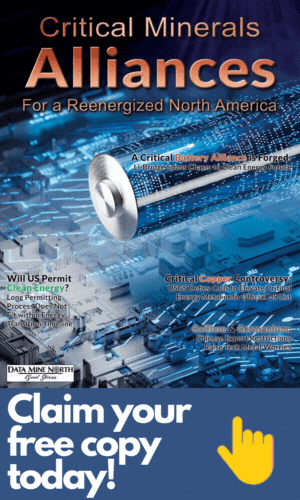Nothing is certain but death and taxes
A handy tip for anyone owning one or more mining claims in Alaska – take advantage of the Alaska Transfer on Death Act North of 60 Mining News – July 30, 2021
Last updated 8/26/2021 at 3pm

Adobe Stock
Estate plans prepared by out-of-state counsel well-schooled in the laws of their own jurisdiction may overlook an Alaska law that helps keep real property out of expensive probate.
In a recent case that crossed my desk, I was confronted by what seems to have been an easily avoided problem relating to the estate of a long-time, well-known, very sophisticated Alaska miner. Since he had a good estate plan in place and a supportive and interested family who was prepared to look after his mining interests in Alaska, I am confident that the reason this simple step was not taken was because his legal advisors simply missed it.
Out of concern that there are others who are at risk of having their survivors wind up in probate court, it seemed appropriate that I use this space to share information about what seems to be an underused legal tool with the readers of this column.
What I am talking about is known as a "transfer on death deed."
Many of Alaska's miners have been climbing the hills and wading the streams of the State for decades. Every time an Alaskan miner dies it is like a page of history turning over. Often, in the Alaskan way, as these intrepid folks grow long in the tooth, they seek refuge in the lower Forty-Eight (or even Hawaii). Frequently, if their exploration efforts have been successful, they have the wherewithal to possess sophisticated estate plans prepared by out-of-state counsel who may be well-schooled in the laws of their own jurisdiction but are insensitive to how those laws may or may not echo the laws of Alaska.
Under Alaska law, if the estate requires probate, which is often the case when real property is in the name of the decedent on death, there is a standard procedure that needs to be followed. This involves the appointment of a personal representative and a series of court filings, for the ultimate purpose of passing on the assets to the intended beneficiaries.
Some states have literally done away with probate proceedings, and if the decedent happens to reside in one of those states, property held locally will pass without fanfare; however, if that decedent happens to own real property in Alaska, such as a mining claim, then in order for title to pass, an Alaska probate proceeding will be required.
There are many ways to avoid probate, of course; a well-designed estate plan including one or more trusts will take advantage of those tools. Having mining claims held in the name of a corporation or limited liability company or even a partnership with survival rights all can work. If the mining claim is held in the name of an individual however, whether a resident or not, there will be paperwork and legal fees for even the simplest conveyance.
Possibly the best tool for people in that situation is a Transfer on Death Deed.
It is amazingly simple to implement. It is not binding on the individual until he dies. The associated process is sufficiently familiar to most miners, so they won't need much in the way of help implementing it.
A comprehensive explanation can be found on the court system's website - Transfer on Death Deed (www.courts.alaska.gov/shc/probate-tod-deed.htm) and there is even a handy link to a form of deed there.
When you die, this deed transfers the described real property, subject to any liens, mortgages, or other encumbrances on the property at your death. Probate is not required. The transfer on death deed has no effect until you die. You can revoke it at any time. You are also free to transfer the property to someone else during your lifetime. If you do not own any interest in the property when you die, this deed will have no effect.
All you have to do is execute the deed and record it in the appropriate Recorder's Office – roughly the equivalent of recording an affidavit of annual labor.
A mining claim is an interest in real property, whether it is a State or a Federal claim. Many times, it is as much a prospect as an actual operation; however, invariably it has significant potential value, and it needs to be passed on in the most efficient way possible.
It goes without saying, however, that all the rules relating to the maintenance of a mining claim must be observed by the grantee when a transfer on death deed takes effect. The annual labor must be performed and required payments to the government must be timely made, affidavits must be timely filed, and outstanding permits and licenses must be complied with.
In other words, the grantee of a Transfer on Death Deed must be briefed on what happens when the deed takes effect. For better or for worse, the government doesn't carve out exceptions for devisees who don't have a working knowledge of the mining law.
If you choose to record a transfer on death deed, it is important that you keep a copy of it with your will and other valuable documents. You should also write a note to your successors reminding them of what needs to be done and when.
Although nothing is certain but death and taxes, it is also the case that if your heirs don't pay the required fees and file the required documents on time, then losing your claims could be pretty close to certain as well.
Live long and prosper.














Reader Comments(0)